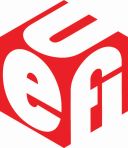The latest specifications are built for a post-quantum world and will support emerging applications like Internet of Things, Embedded and Automotive
Press Releases
The new specification offers direct implications for many computing platforms, from IoT devices to high-end servers.
The open specification offers updated device configuration and power management, allowing for the advancement of new hardware and standards.
New UEFI Specification, Version 2.8, captures evolution of platform firmware technology
ARM Strengthens Its Long-Standing Presence and Contributions to the UEFI Ecosystem
The Unified Extensible Firmware Interface (UEFI) Forum held its Spring 2017 UEFI Seminar and Plugfest last month in Nanjing, China, hosting firmware thought leaders and testing the latest technology—indicating high interest in UEFI in China’s technology market.
Firmware Technology Event: UEFI Forum and Byosoft host Spring 2017 UEFI Seminar and Plugfest in Nanjing, China on March 27 through March 31.
Today, the UEFI Forum announced the availability of the Platform Initialization (PI) Specification v1.5, which transforms the System Management Mode (SMM) drivers to allow developers to seamlessly reuse code from an AMD, Intel, or Via IA32/x64 platform on an ARM®-based platform. The PI Specification’s fundamental goal is to continue to improve interoperability between firmware components from different sources.
Today, the UEFI Forum announced the availability of a new white paper. “The Chain of Trust: Keeping Computing Systems More Secure” is the first in a series of white papers that explores best practices for locking down the firmware platform using an approach called Chain of Trust (CoT). CoT helps users gain more confidence that their computing system is as safe and free from different classes of attacks as possible.
The UEFI Forum announced availability of the Advanced Configuration and Power Interface (ACPI) Specification v6.1 and the Unified Extensible Firmware Interface (UEFI) Specification v2.6. The new specifications continue to advance by keeping pace with market demand for enhanced mobility and manageability of computing systems for customer and enterprise levels.
